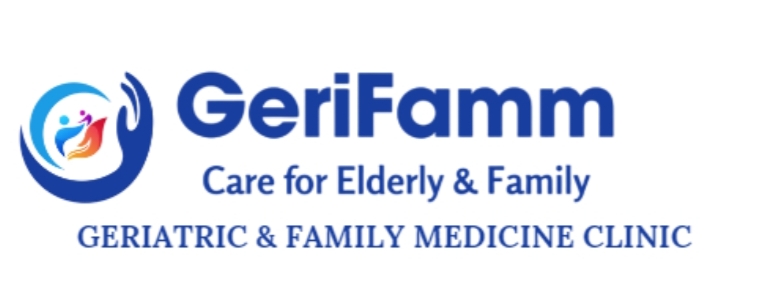Introduction
Adolescence is a critical stage of human development. It is a time when significant physical, emotional, and mental changes occur, as children transition into young adults. During this period, the body undergoes rapid growth and hormonal changes, and the need for proper nutrition, physical activity, and emotional support becomes crucial. Ensuring adolescent health is not just about preventing disease; it’s about empowering young people to lead healthy, fulfilling lives and develop habits that they will carry into adulthood.
In this blog, we will explore the key aspects of adolescent health, including physical and mental health, common health concerns, and how parents and caregivers can support adolescents through this transformative time.
Physical Health in Adolescents
The physical changes that occur during adolescence are significant. Puberty leads to changes in height, weight, and muscle development, as well as the onset of menstruation in girls. These changes can bring challenges for adolescents, particularly with body image, self-esteem, and understanding their physical health.
1. Nutrition: Proper nutrition is essential during adolescence to support rapid growth and development. Adolescents require increased amounts of certain nutrients, including proteins, vitamins, and minerals like calcium, iron, and folate. A balanced diet consisting of fruits, vegetables, whole grains, lean proteins, and healthy fats supports bone health, muscle development, and cognitive function. Calcium and vitamin D are particularly important for bone health during this period.
2. Physical Activity: Regular exercise plays an important role in promoting healthy physical development. Adolescents should engage in at least 60 minutes of moderate to vigorous physical activity each day, which could include sports, walking, cycling, or playing outdoors. Exercise supports cardiovascular health, muscle strength, and bone density and can also improve mental health.
3. Sleep: Adolescents require more sleep than adults, generally around 8-10 hours per night. However, many teens struggle with sleep deprivation due to school, extracurricular activities, and social pressures. Adequate sleep is critical for overall health and well-being, as it supports brain function, emotional regulation, and physical growth.
Mental Health in Adolescents
Alongside physical health, mental and emotional health is equally important during adolescence. Hormonal changes and the challenges of becoming more independent can lead to mood swings, anxiety, and stress. Adolescents face the pressure of school, peer relationships, and navigating a rapidly changing social environment.
1. Common Mental Health Issues: Mental health conditions like depression, anxiety, and eating disorders are not uncommon during adolescence. The adolescent brain is still developing, making them more susceptible to these conditions. In fact, adolescence is the peak time for the onset of many mental health issues. Recognizing symptoms such as
persistent sadness, changes in appetite, withdrawal from social activities, or extreme worry is vital for early intervention.
2. Coping Mechanisms: Teaching adolescents healthy coping mechanisms can significantly improve their ability to manage stress and emotional challenges. Techniques like mindfulness, deep breathing, journaling, and physical activity can help regulate emotions. Building resilience through problem-solving, emotional expression, and positive thinking can aid adolescents in navigating the complexities of life.
3. Building Emotional Resilience: Providing adolescents with a supportive and open environment where they feel heard and understood is critical for emotional health. Encouraging communication, fostering self-confidence, and helping them build strong social networks can reduce the risk of mental health issues later in life.
Common Health Concerns in Adolescence
During adolescence, certain health conditions may become more prevalent or emerge for the first time. Some of these health concerns include:
1. Obesity: Obesity rates among adolescents are increasing globally, often due to poor dietary habits and lack of physical activity. Obesity can lead to long-term health problems such as diabetes, heart disease, and joint issues. Encouraging healthy eating and an active lifestyle from a young age can help prevent these conditions.
2. Sexual Health: Adolescents are often exploring their sexuality and may face risks such as sexually transmitted infections (STIs) and unintended pregnancies. Comprehensive sexual health education, access to contraception, and open discussions can help adolescents make informed choices and protect their sexual health.
3. Substance Abuse: Adolescents may experiment with substances such as alcohol, tobacco, and drugs. Peer pressure, stress, and curiosity are common reasons for substance use. Preventive measures include education about the risks, strong parental support, and involvement in community or school programs that discourage substance abuse.
Supporting Adolescent Health: The Role of Parents and Caregivers
Parents and caregivers play a pivotal role in supporting adolescent health. Their involvement can make a significant difference in an adolescent’s development and well-being. Here are some strategies for supporting adolescents through this critical period:
1. Encourage Open Communication: It’s essential to create a safe and open environment where adolescents feel comfortable discussing their challenges, concerns, and emotions. Encourage honesty, empathy, and active listening.
2. Promote Healthy Lifestyle Choices: Model healthy eating habits, regular exercise, and proper sleep routines. Adolescents are more likely to adopt healthy habits when they see their parents or caregivers practicing them.
3. Support Mental Health: Pay attention to any signs of mental distress or behavioral changes. Encourage seeking professional help if necessary, and be proactive about mental health by discussing it openly and without stigma.
4. Empower Decision-Making: Empower adolescents to make informed decisions about their health and lifestyle. Provide them with the information and guidance they need, but also allow them to take responsibility for their choices.
Conclusion
Adolescence is a time of rapid growth and development, both physically and emotionally. Ensuring that adolescents receive the support they need during this time is essential for their long-term health and well-being. By focusing on proper nutrition, physical activity, mental health, and addressing common health concerns, we can empower adolescents to lead healthy, fulfilling lives. Parents, caregivers, and educators all play an important role in supporting adolescents as they navigate the challenges of this transformative period.

